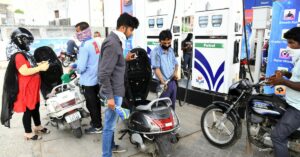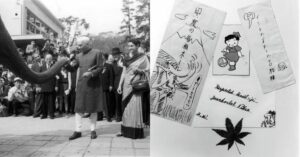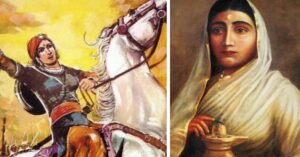How Solar Drying Fruits Helped My Family’s Chikoo Business Increase Sales by 40%
Ninad, Achyut and Latika Patil, a family from Maharashtra, run Gold Orchards, where they use solar drying machines to process chikoo to make innovative products out of them.
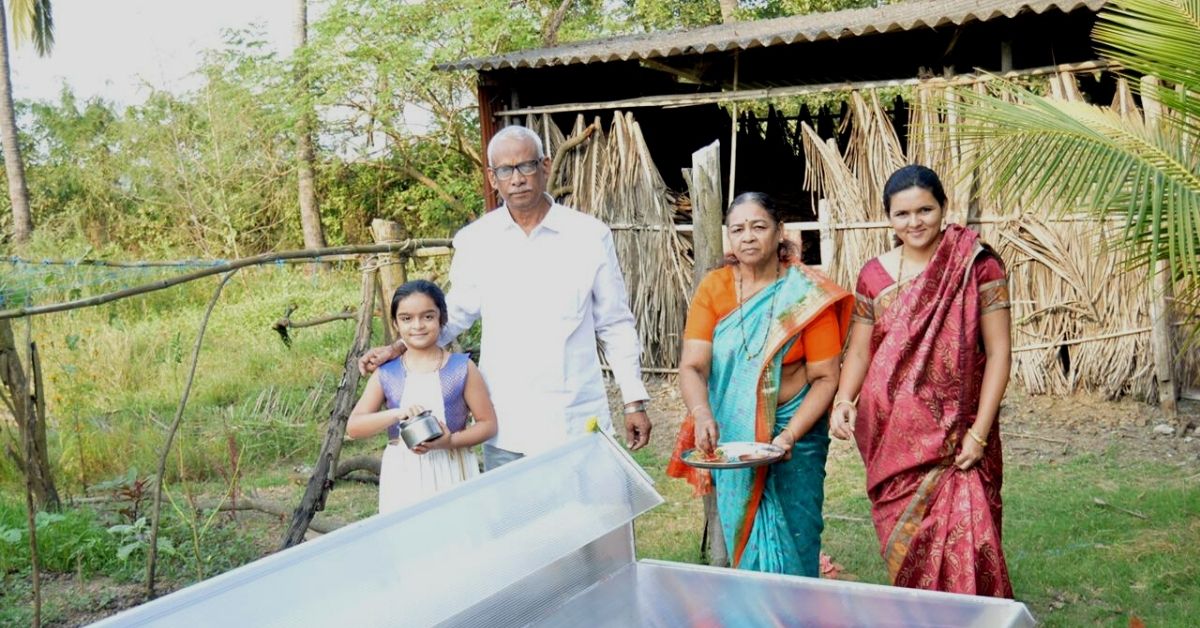
Hailing from Dahanu in Maharashtra, fourth-generation chikoo horticulturists Latika and Achyut Patil had been engaged in cultivating the fruit for around 40 to 50 years. They would sell their produce to neighbouring cities, albeit without getting full profits.
“During peak season, 30 per cent of the harvest was wasted, and there were times when farmers would get a rate of a meagre Rs 7 per kg from the market,” recalls Ninad Patil, Latika’s son.
On retiring as a teacher in 2015, Latika says she found herself with a lot of time on her hands. Her interest in the processing of fruits deepened during the years following her retirement. “In the programmes I took part in, I learnt about the different ways to process fruits. Sun-drying would cause the fruits to get spoiled, and we were on the lookout for new alternatives.”
Since 2016, the Patil family has been running Gold Orchards, which focuses on the cultivation of chikoo. The reason for the choice of fruit, they say, was its popularity in the area, as well as its ability to turn into a successful venture. “Since the 2012 Chikoo Festival started as an annual tourism event at Bordi Beach, it helped us gauge the market and people’s interest in this humble fruit,” says Ninad.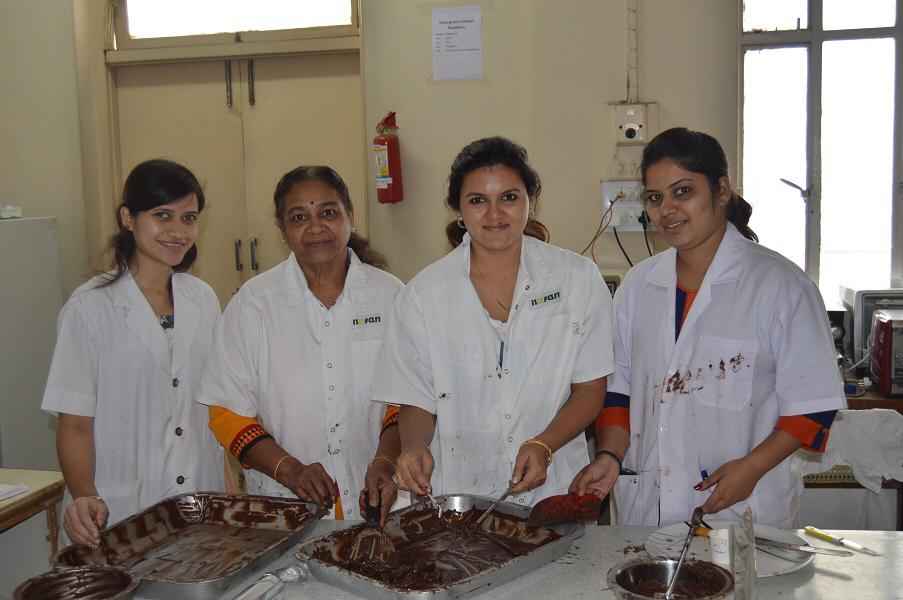
The same year that they started their business, the Ministry of Commerce and Industry awarded the Geographical Indication (GI) tag to Dahanu Gholvad Chikoo for being the best among Indian varieties with its unique sweet taste and soft creamy texture. This gave the family the confidence to make further investments in the chikoo processing industry.
However, sensing that the problem of fruit spoilage was putting a damper on sales, the Patils decided to find a solution to this. While sun-drying had been a popular option in the region, with Latika’s husband too having resorted to it, it was not an ideal solution.
Highlighting the major concerns in employing this technique, Ninad explains, “There’s a three to four day drying period, uncertainty in output due to weather conditions, a shelf life of only two to three months, discolouration of fruit, and degradation of nutrients, in addition to the high rate of spoilage.”
A fascinating alternative
During the search to find processing alternatives, Ninad came across a company ‘M/s Science for Society (S4S) Technologies Pvt Ltd’, which had developed a very efficient solar conduction dryer (SCD). He later found out that this dryer was developed by technocrats from the Institute of Chemical Technology (ICT), Wadala and had been successfully implemented for many applications.
Explaining how the machine works, he says it consists of four plates with a patented food-grade black powder coating which helps in even drying the fruit. “Under any climatic circumstances the temperature of these plates is maintained at 55-60 degrees, which helps in conserving the nutrients, thus preventing the natural sugar content in the fruit from caramelising to form a dark colour,” he says. He adds that the plates are covered by UV protection high-grade polycarbonate sheets which also protect the contents from dust and external particles.
Wishing to experiment with this, Ninad connected with the team and carried 15 kg of chikoo to ICT Wadala. Trials were conducted and he says the results were very encouraging.
Scaling knowledge and educating farmers
The family conducted seminars wherein they held exhibition displays for all farmers in the region. “We could form a group of 15 farmers who upgraded to drying chikoo using solar dryers and also gave them a buyback guarantee for all their produce. Today we have 20 of these machines, which cost Rs 40,000 each.”
Latika, who has been running a women’s group initiative in Dahanu, says that she encouraged the women here too, to use these solar dryers for processing the fruits. “Banks don’t give women loans easily. So I head this group that takes daily collections from women and when they need, gives them loans. Today, many women are part of this group, and a few of them have also tried and tested solar dryers. However, since we have the machinery to package and sell, these women give us their produce and we then sell it in the market, giving them due profits.”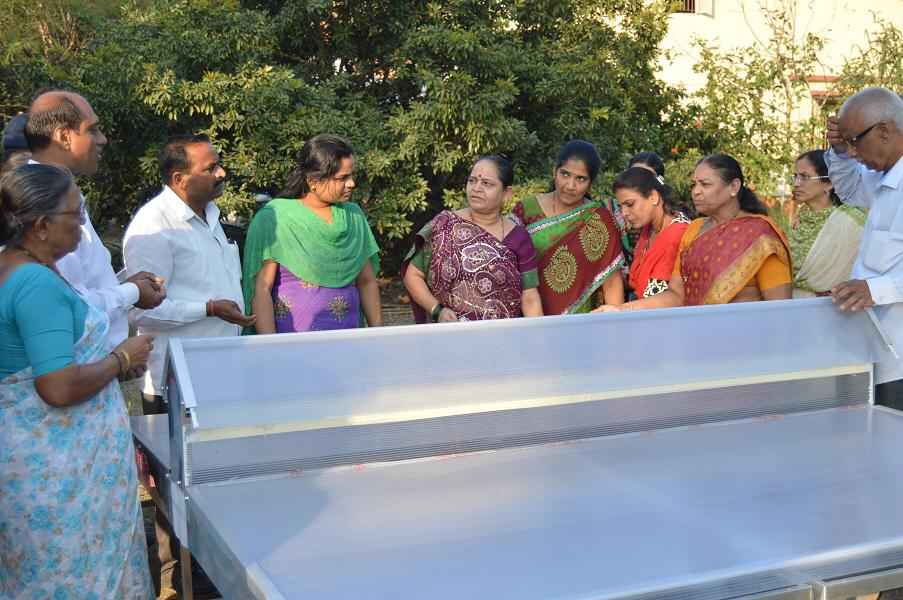
Comparing open sun drying that the farmers in the area had been practising for years, with the lucrative SCD drying, Ninad says solar dryers reduce the processing time of the fruit to one day compared to three to four days that open drying would usually take. In addition, the shelf life is increased to nine months, in contrast to the three months that open drying would provide. The quality of the fruits too was observed to be fantastic with solar dryers. “Soft and candy-like” is how Ninad describes them.
The process of drying using solar dryers gave a 100 per cent efficiency, he says, and kept the nutrients intact to 90 per cent. The machines ensured that the quality of the fruits was such that they were easy to transport, store and consume.
“We were able to scale our production capacity from 50 kg per year to 250 kg per year per farmer. Sales have grown 40% annually,” he says.
The products that are produced can be bought through Gold Orchards or Aura Green — a marketing initiative that is a partnership between Ninad’s wife Vidula Patil and three other women entrepreneurs — Himali Vartak, Priyanka Raut and Arpita Raut. The products are available at the retail store in Dahanu and shipped across the country. Ranging from chikoo chocolate to powders to pickles, the Aura Green initiative houses these products at a price range of Rs 100 to Rs 200.
The family also wishes to build awareness regarding this process of solar drying. “In the market, there are processed fruits available, but these are often with additives. We wish to amplify the message that our products are available year-round, require no cold storage, follow a zero-waste production process, require no infra for ripening, have zero labour for handling, peeling, and processing, and have an 80 per cent lower logistics cost compared to fresh fruit.”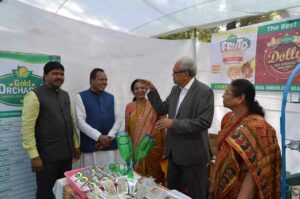
Institutional support to create awareness and reach out to the addressable market is what the family aims to get, as they are unable to find suitable and cost-effective methods to get the product certified for larger export opportunities.
“We aspired to overcome these constraints and harness resources and techniques to preserve the legacy of our region,” says Ninad.
This story made me
- 97
- 121
- 89
- 167
Tell Us More
We bring stories straight from the heart of India, to inspire millions and create a wave of impact. Our positive movement is growing bigger everyday, and we would love for you to join it.
Please contribute whatever you can, every little penny helps our team in bringing you more stories that support dreams and spread hope.






